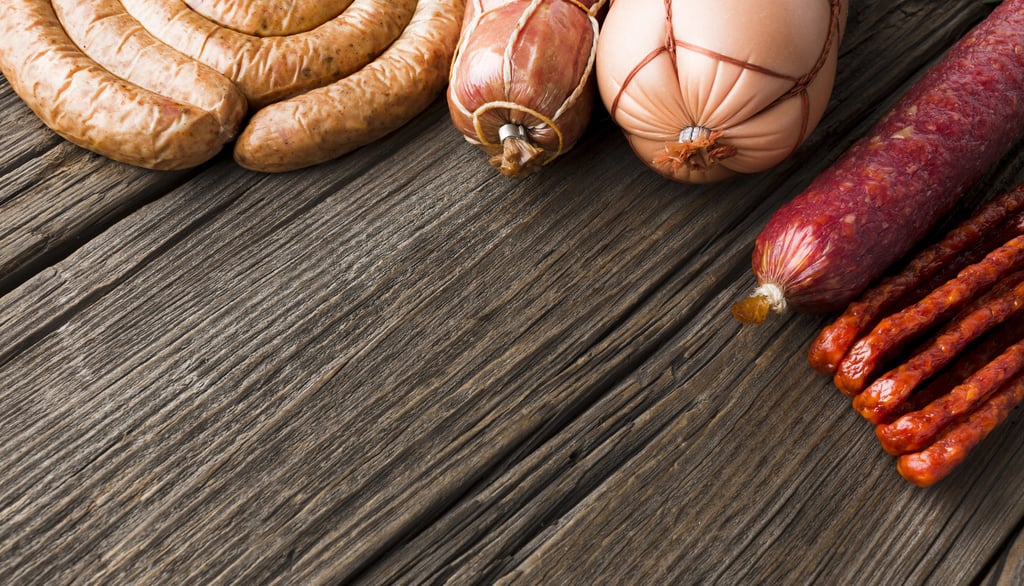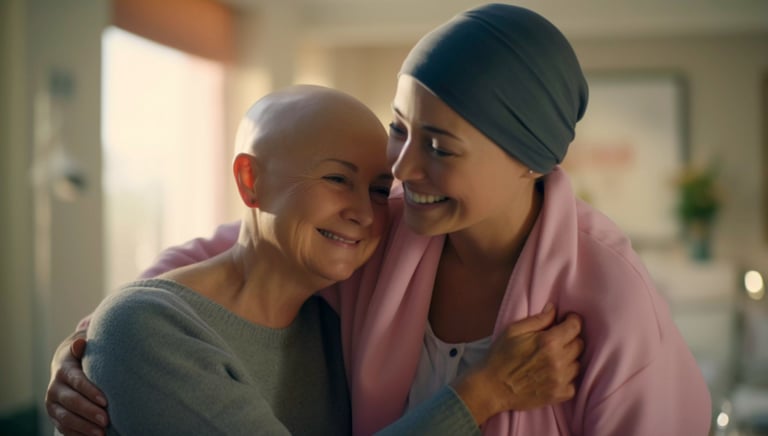Health Risk Groups: What WHO and IARC Say About Smoking, Processed Meats, and Cancer
Learn about the main health risk groups according to WHO and IARC, such as smoking and processed meats, and how to prevent cancer with healthy lifestyle choices.
DOENÇA
Escolha Mast
8/2/20254 min read


Health Risk Groups: What WHO and IARC Say About Smoking, Processed Meats, and Cancer
Health is our most valuable asset. However, many everyday habits, which may seem harmless at first, can turn into silent traps for our bodies. According to the World Health Organization (WHO) and the International Agency for Research on Cancer (IARC), several behaviors and environmental exposures significantly increase the risk of serious diseases—especially cancer.
In this article, you will learn:
What the main health risk groups are, according to the world’s leading health authorities;
How smoking and the consumption of processed meats contribute to the development of cancer, particularly colorectal cancer;
What singer Preta Gil said when she revealed her battle against the disease;
And most importantly: how to prevent and balance your habits with real, accessible solutions—without living in fear.
Let’s start with the most relevant facts.
What are health risk groups according to WHO and IARC?
The World Health Organization (WHO) defines a risk group as any exposure or behavior that significantly increases the likelihood of developing diseases or health conditions. The IARC, a specialized cancer research agency under WHO, classifies substances, foods, and physical agents based on their carcinogenic potential (i.e., their ability to cause cancer).
These classifications are divided into groups based on the level of scientific evidence:
Group 1: Carcinogenic to humans (sufficient evidence)
Group 2A: Probably carcinogenic
Group 2B: Possibly carcinogenic
Group 3: Not classifiable as to carcinogenicity
Group 4: Probably not carcinogenic (extremely rare)
It’s important to understand that being classified as Group 1 does not mean the risk is the same for everyone. It means there is strong scientific evidence linking the agent to cancer cases. This group includes substances ranging from tobacco to ultra-processed foods.
Smoking: Public health's number one enemy
According to the WHO, tobacco is the leading preventable cause of death worldwide. It kills over 8 million people every year, including around 1.3 million non-smokers exposed to secondhand smoke.
The IARC classifies tobacco in Group 1, as it is directly linked to multiple types of cancer, such as:
Lung cancer
Laryngeal cancer
Oral cancer
Pancreatic cancer
Bladder cancer
And colorectal cancer
Beyond cancer, smoking also contributes to cardiovascular diseases, respiratory illnesses, and reproductive issues. The risk is not limited to cigarettes: cigars, hookahs, and e-cigarettes also contain toxic and carcinogenic substances.
The good news? Quitting smoking drastically reduces health risks, even for long-time smokers. About 10 years after quitting, the risk of lung cancer drops by 50%. In other words: it’s never too late to quit.
Processed meats: Why are they linked to cancer?
Diet is another fundamental factor. In 2015, the IARC classified processed meats—such as ham, sausages, hot dogs, bacon, salami, and bologna—as Group 1 carcinogens.
These foods contain chemical preservatives like nitrites and nitrates, which, when metabolized by the body, can form potentially carcinogenic compounds such as nitrosamines.
The primary type of cancer associated with frequent consumption of these meats is colorectal cancer. According to WHO, eating 50 grams of processed meat daily (roughly two slices of bacon) increases the risk of colorectal cancer by about 18%.
But here's a key point: this does not mean that occasional consumption will cause cancer. Experts warn that excessive and frequent intake, without moderation, can act as a long-term trigger.


Colorectal cancer: One of the most preventable—and yet rising
Colorectal cancer (which affects the large intestine and rectum) is the third most common cancer worldwide and the second leading cause of cancer-related deaths, according to the latest WHO data.
Although highly preventable and treatable when detected early, its incidence continues to rise, especially among people with low-fiber diets, sedentary lifestyles, frequent consumption of processed foods, and family history of the disease.
In a recent interview, Brazilian singer Preta Gil spoke openly about her diagnosis of colorectal cancer. She emphasized that she had no severe symptoms at first, and that early detection was crucial for her treatment. In her words:
“We need to stop being afraid of going to the doctor, getting tested, and changing our habits while there’s still time.”
Public figures speaking out like this help break taboos around cancer and promote the importance of prevention.
The key is balance: moderation and natural foods
The truth is, we don’t have to live in fear of everything we eat or do. The safest path lies in balance, moderation, and education.
Here are some practical tips recommended by trusted health organizations:
Avoid frequent consumption of processed meats. Choose fresh, lean meats (like chicken or fish), and whenever possible, use vegetables and legumes as protein sources.
Eat more fiber: fruits, vegetables, whole grains, and legumes help your digestive system and protect your colon.
Limit ultra-processed foods, which contain excess preservatives, coloring agents, and chemical additives.
Exercise regularly and maintain a healthy weight.
Get preventive screenings, especially after age 45—even if you have no symptoms.
And, of course, quit smoking—the single most avoidable risk factor of all.
A healthy lifestyle is the best defense against disease
Prevention begins with knowledge. Understanding what can harm your body is the first step toward making better choices. The good news is that you don’t have to change everything overnight or adopt a rigid lifestyle without joy.
Changing habits is a process. And every small step counts:
Cutting down on soft drinks during the week
Replacing sausages with eggs or steamed vegetables
Cooking at home more often
Saying “no” to cigarettes, even at parties
These small acts, done consistently, become powerful shields over time.
Conclusion: Take care of yourself with lightness and awareness
You don’t need to be afraid of statistics. Knowledge is meant to empower—not scare. Knowing what science has uncovered about cancer and its risk factors is a gift—an opportunity to live longer and better.
Remember: moderation is key. You don’t have to eliminate everything—just make more conscious choices. Choose natural foods, move your body, care for your mind. The future of your health starts with what you decide today.
Now it’s your turn. Take the first step: review your habits, read the labels, schedule that check-up—or simply decide to take better care of yourself. Your body will thank you.
Thank you for reading.
Take care, and see you next time! 🌿
ESCOLHA MAST
Escolha Mast is an informative website that publishes blog posts and also promotes products that can help you in your quest for health and well-being.
CONTACT INFORMATION
Email: escolhamast@gmail.com
Phone: +55 068 99981-0331
© 2025. All rights reserved to Escolha Mast.
Choose to live well!
